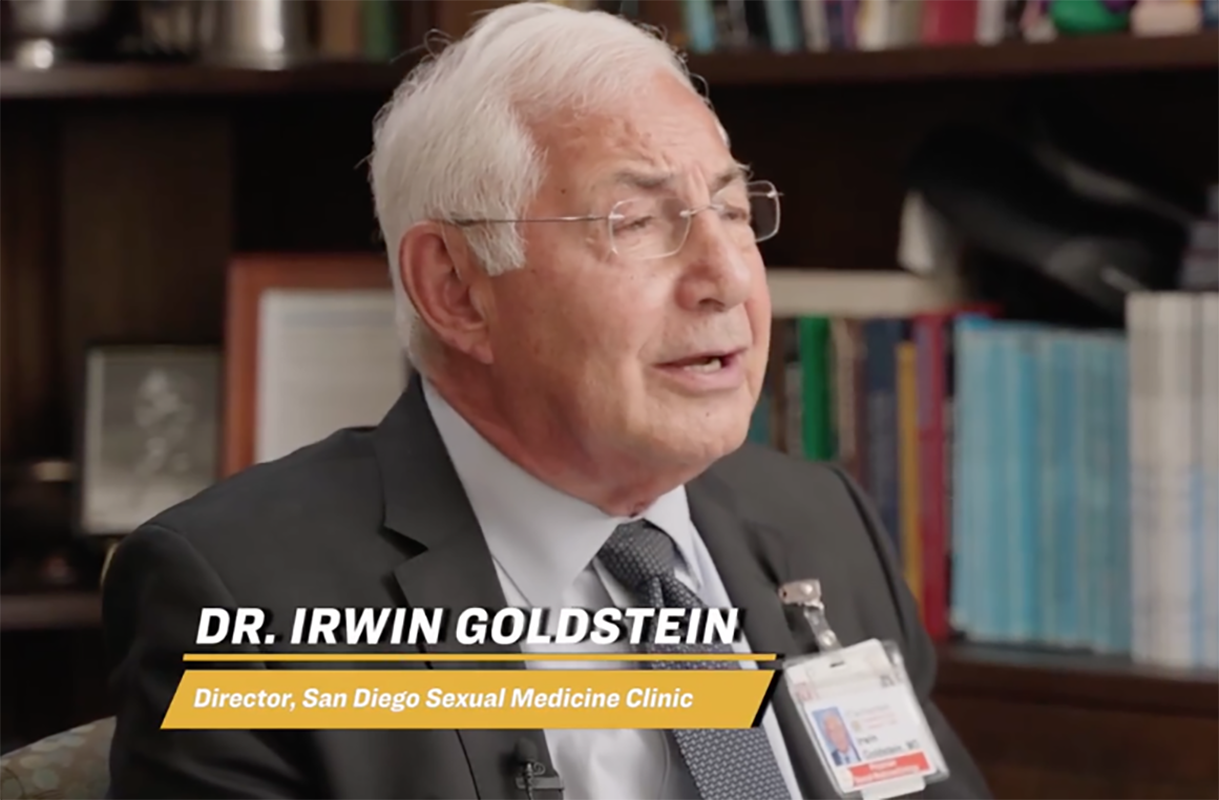SSRI Sexual Dysfunction: New Research Reveals Permanent Side Effects and the Need for Advanced Monitoring
Understanding Post-SSRI Sexual Dysfunction (PSSD): Groundbreaking Clinical Evidence
Dr. Irwin Goldstein, director of San Diego Sexual Medicine and a pioneering researcher in sexual health, has recently presented groundbreaking findings at Sexual Medicine Society of North America meeting that challenge decades of medical assumptions about selective serotonin reuptake inhibitors (SSRIs). His research demonstrates that these widely-prescribed antidepressants can cause permanent sexual dysfunction — contradicting the long-held belief that SSRI sexual side effects resolve after discontinuation. He recently discussed this research on the American Thought Leaders platform.
What Is PSSD? The Scope of Permanent Sexual Side Effects from Antidepressants
Post-SSRI Sexual Dysfunction (PSSD) represents a serious medical condition that can persist indefinitely after stopping antidepressant medication. Goldstein's 15-year clinical review reveals alarming evidence: PSSD manifests as irreversible structural changes in sexual tissue, including penile scarring typically observed in significantly older populations.
Ultrasound studies of PSSD patients in their twenties showed vascular profiles indistinguishable from men over 55 with diabetes and hypertension. Most concerning, Goldstein's youngest patients developed this antidepressant-induced sexual dysfunction at age 11, potentially never experiencing normal sexual function.
PSSD Symptoms: Multiple Domains of Sexual Dysfunction
The condition encompasses several interconnected symptoms:
- Erectile dysfunction with measurable vascular impairment
- Severe loss of libido (sexual desire)
- Genital anhedonia: inability to experience sexual pleasure
- Orgasmic dysfunction and difficulty achieving climax
- Reduced testosterone levels persisting after medication cessation
These changes appear linked to permanently altered brain neurotransmitter function and increased oxygen radical concentrations that destroy penile smooth muscle cells—physiological damage that distinguishes PSSD from temporary SSRI side effects.
The PSSD Prevalence Problem: A Crisis of Informed Consent
Despite affecting what Goldstein describes as a "single-digit percentage" of SSRI users—still representing hundreds of thousands of patients given the medications' widespread prescription—most healthcare providers remain unaware of PSSD. This knowledge gap creates a significant ethical concern: patients, including minors prescribed SSRIs for depression and anxiety, undergo potentially life-altering treatment without understanding the permanent sexual dysfunction risks.
The situation grows more complex given SSRIs' legitimate role in suicide prevention for depression and anxiety disorders. This creates a nuanced risk-benefit calculation requiring precise individual assessment rather than broad population-level assumptions about antidepressant safety.
Why Sexual Health Monitoring Technology Matters: Addressing Critical Gaps
Goldstein's PSSD research underscores the urgent need for objective, quantitative assessment tools in sexual medicine. Traditional clinical evaluation, while comprehensive, relies heavily on subjective patient reporting and intermittent doctor visits. This approach proves inadequate for:
- Early detection of physiological changes during SSRI treatment
- Longitudinal monitoring of sexual function decline or recovery
- Treatment efficacy assessment in PSSD management protocols
- Research advancement requiring large-scale, standardized data collection on antidepressant sexual side effects
Objective Erectile Function Monitoring: A New Paradigm in Sexual Health
Advanced monitoring technology such as the TechRing, represents a paradigm shift toward evidence-based sexual health management. By continuously tracking nocturnal penile tumescence and rigidity—objective markers of vascular and neurological sexual health—modern wearable devices address critical gaps identified by PSSD research.
Clinical Applications: How Continuous Monitoring Can Prevent and Treat PSSD
For patients taking SSRIs and those already experiencing PSSD, continuous erectile function monitoring offers several advantages:
Baseline Documentation for SSRI Patients
Establishing pre-treatment erectile function baselines could identify at-risk patients and provide crucial data for informed consent discussions before starting antidepressant therapy. This proactive approach aligns with emerging standards for medication safety monitoring.
Early Warning Systems During Antidepressant Treatment
Continuous sexual function monitoring during SSRI treatment could detect emerging dysfunction before permanent structural damage occurs, potentially enabling early intervention strategies such as medication adjustment or discontinuation.
Treatment Optimization for PSSD Patients
For patients receiving complex PSSD treatments—as administered in specialized clinics like Goldstein's—objective erectile function monitoring provides measurable outcome data. This enables clinicians to adjust therapies based on physiological response rather than subjective reports alone, improving treatment precision.
Advancing PSSD Research Through Data Collection
Large-scale deployment of monitoring technology could generate the population-level data needed to identify PSSD risk factors, prevalence patterns, and treatment responses—addressing critical knowledge gaps in understanding permanent antidepressant sexual side effects.
The Future of Sexual Medicine: Integrating Research and Technology
The convergence of Goldstein's clinical insights with advanced sexual health monitoring technology suggests a new standard of care. Rather than reactive treatment of established sexual dysfunction, continuous monitoring enables proactive intervention and evidence-based decision-making.
For thousands of patients currently suffering from PSSD—many of whom Goldstein successfully treats despite the condition's permanence—objective monitoring could transform management from educated guesswork to precision medicine tailored to individual physiological responses.
Conclusion: Evidence-Based Prevention in Modern Sexual Health Care
Dr. Goldstein's PSSD research represents more than an important clinical finding; it exemplifies the urgent need for objective, continuous health monitoring in conditions where traditional medical assumptions prove inadequate. Advanced sexual health monitoring technologies don't just collect data—they enable the precise, individualized medicine that complex conditions like Post-SSRI Sexual Dysfunction demand.
As healthcare increasingly recognizes the limitations of episodic clinical assessment, technologies providing continuous, objective physiological monitoring become essential tools for ensuring patient safety and optimal outcomes. This is particularly critical given the widespread prescription of SSRIs for depression, anxiety, and other mental health conditions.
The integration of groundbreaking clinical research with innovative monitoring technology like the TechRing, represents the future of sexual medicine: evidence-based, patient-centered, and committed to preventing rather than merely treating iatrogenic sexual dysfunction. For patients considering or currently taking antidepressants, this represents hope for better informed consent, earlier intervention, and improved long-term sexual health outcomes.




